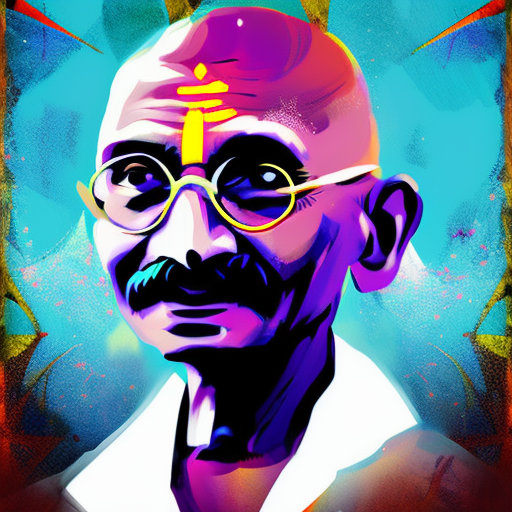One-line Summary:
Gandhi: An Autobiography is the compelling life story of Mohandas Karamchand Gandhi, a man who dedicated his life to nonviolent resistance and played a pivotal role in India’s struggle for independence.
Introduction:
Gandhi: An Autobiography, also known as The Story of My Experiments with Truth, is a captivating memoir that chronicles the life and teachings of Mohandas Karamchand Gandhi, popularly known as Mahatma Gandhi. This autobiography provides a unique insight into Gandhi’s personal journey, his experiments with truth, and his unwavering commitment to nonviolence as a means of achieving social and political change. Through his powerful storytelling, Gandhi shares his experiences, struggles, and reflections, offering readers a profound understanding of his philosophy and the transformative impact he had on the world.
From Childhood to London:
The autobiography begins with Gandhi’s childhood in Porbandar, a small town in western India. He describes his family background, his early education, and the influence of his parents and religious beliefs on his character. As a young boy, Gandhi displays a strong sense of justice and a desire to fight against injustice. After completing his education in India, he travels to London to study law, where he encounters new ideas and experiences that shape his worldview.
Experiments with Truth:
One of the central themes of Gandhi’s autobiography is his lifelong commitment to truth and nonviolence. He describes his experiments with various aspects of his life, including diet, celibacy, and the pursuit of simplicity. Gandhi believed that by living a truthful and nonviolent life, one could achieve personal and social transformation. He shares his struggles and failures, as well as the lessons he learned along the way. Through his experiments, Gandhi demonstrates the power of self-discipline, self-reflection, and self-transformation.
The Fight for Indian Independence:
A significant portion of the autobiography is dedicated to Gandhi’s involvement in India’s struggle for independence from British rule. Gandhi becomes a prominent leader of the Indian National Congress and leads various nonviolent campaigns, including the famous Salt March. He advocates for civil disobedience, boycotts, and peaceful protests as means of challenging British authority. Gandhi’s unwavering commitment to nonviolence inspires millions of Indians to join the freedom movement and fight for their rights.
Key Takeaways:
- Gandhi’s autobiography provides a deep understanding of his philosophy of truth and nonviolence.
- Through his experiments, Gandhi demonstrates the power of self-transformation and personal growth.
- The autobiography offers insights into India’s struggle for independence and the role of nonviolent resistance in achieving political change.
- Gandhi’s commitment to simplicity, self-discipline, and self-reflection serves as an inspiration for individuals seeking to make a positive impact on society.
- The autobiography highlights the importance of fighting against injustice and standing up for what one believes in.
Memorable Quote:
“You must be the change you wish to see in the world.” – Mahatma Gandhi
In conclusion, Gandhi: An Autobiography is a remarkable account of Mahatma Gandhi’s life, teachings, and his tireless efforts to bring about social and political change through nonviolence. This autobiography serves as a testament to the power of truth, self-transformation, and the indomitable spirit of a man who dedicated his life to the pursuit of justice and equality. Gandhi’s story continues to inspire generations, reminding us of the importance of compassion, perseverance, and the belief that even a single individual can make a significant difference in the world.












